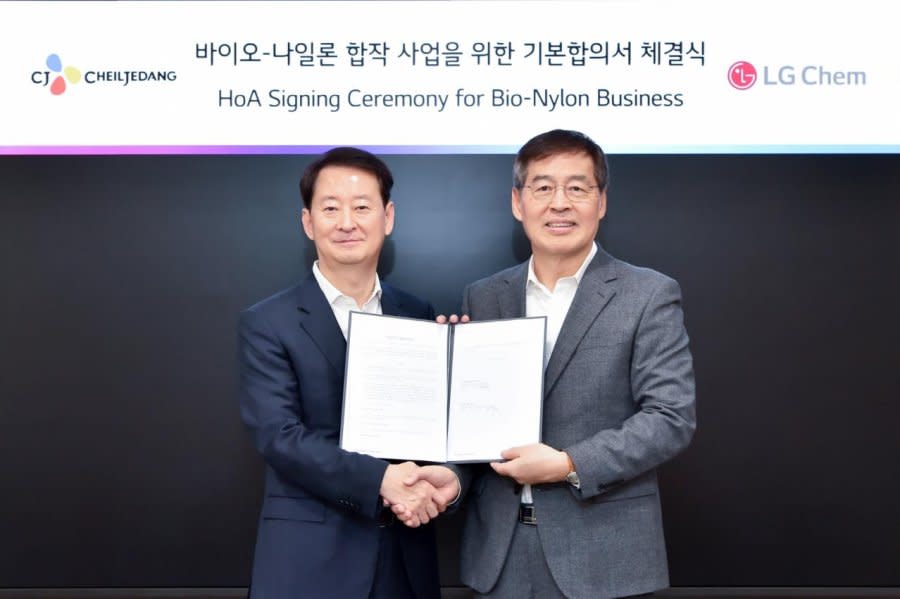South Korean firms form partnership to produce bio-nylon

SEOUL, Feb. 20 (UPI) -- South Korea's LG Chem and CJ CheilJedang have announced a partnership to produce a bio-based nylon to replace conventional synthetic polymers.
LG Chem, the country's leading chemical company, said Thursday it was founding a new joint venture to increase production of ingredients needed for bio-based nylon products.
The partnership will entail CJ CheilJedang providing pentamethylenediamine, also known as cadaverine, a key ingredient in bio-based nylon products, to LG Chem.
CJ CheilJedang is the country's top food company, well known for its global brands like Bibigo, Gourmet and Hatbahn.
The company has the capability to produce lysine-based pentamethylenediamine from corn and sugarcane.
Once the ingredient is in hand, LG Chem will work on producing nylon products at its existing facilities or a new one.
"We have yet to decide whether to build new dedicated factories or to take advantage of existing ones with some modification," an LG Chem official told UPI News Korea.
Nylon, which was invented by DuPont in the 1930s, became famous in the 1940s after it was used in the production of stockings. It has continued as a significant industrial polymer.
Thanks to its high resistance to wear, including from heat and chemicals, nylon is used widely for all manner of products, such as clothing, seat belts, parachutes, airbags, nets, machine parts and even packaging.
Also known as polyamide, nylon, however, has come under fire recently due to its environmental impact, namely the greenhouse gas effect and the requirement of large amounts of water in the production stage.
Bio-based nylon is regarded as a more eco-friendly alternative.
LG Chem said it expects the international demand for bio-based nylon to grow from a mere 400,000 tons in 2023 to 1.4 million tons by 2028.


